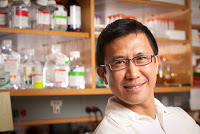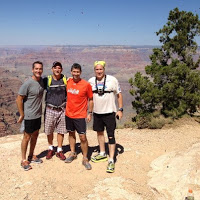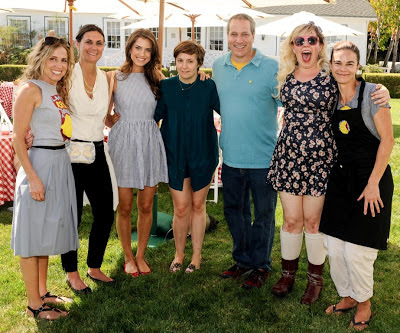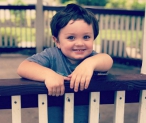Another National Childhood Cancer Awareness Month (September) is in the books, thanks so much to everyone who read our series of blogs throughout the month and helped spread the word about the cause and the need for increased funding and support. It’s pretty ridiculous to think that childhood cancers (that’s 12 different disease types) continue to receive a mere 4% of the federal government’s total research budget. That’s why we raise the funds that we do – to help provide support to pediatric cancer researchers who aren’t receiving funding for their projects by the federal government. These projects funded by ALSF, thanks to your support, really are making important and significant inroads to cures.
 |
| ALSF grantee Hai Yan, MD. |
We’re trying to do a better job at communicating these research accomplishments to you all, but it’s tough. Not because the work isn’t great – it’s pretty fantastic – but because one of the things we value investing in is basic research and this type of research doesn’t usually provide instant gratification (such as finding a cure after one clinical trial) and it’s usually not flashy, for lack of a better word. But, it’s extremely valuable and can often lead to revolutionary findings.
A great example of this is the work of the two scientists who were honored with the Nobel Prize in Physiology or Medicine earlier this week. The prize went to John B. Gurdon of the University of Cambridge in England, and Shinya Yamanaka of Kyoto University in Japan for discovering that mature cells (adult cells) can be reprogrammed back to an immature state and perform new functions. To you and me, this may not sound too exciting, but it’s nothing short of a game-changer in the research world.
(A quick note - the work references adult stem cell regeneration, not embryonic stem cells. ALSF did not fund any part of the awardees’ work)
I won’t get too far into this, but Gurdon’s and Yamanaka’s discoveries prove that every cell has the ability to reprogram itself and become “young” again. These cells can then be modified to mature into any type of cell in the body, and potentially replace cells damaged by disease. So think of it, one day doctors could take a few cells from your skin, manipulate them to revert back to their primitive state, and then use these cells to help treat you if you have Alzheimer’s, heart disease or maybe even cancer. Rebuilding your body with tissues generated from your own cells – pretty cool.
Now, the research is still years away from yielding a clear breakthrough in medical treatment, but already the work has proven useful to understanding how diseases develop in cells and for testing new drugs, namely targeted drugs (ala personalized medicine). They wouldn’t just give anyone a Nobel Prize, so you know it’s significant.
Why am I telling you all this? Just to remind you that although we may not be able to report flashy findings all the time (e.g. that one of our projects found a cure for a particular type of childhood cancer) – it’s still extremely important to support these projects as many are laying the groundwork and have enormous implications in the scientific world, even if you and I don’t readily understand how. Thanks to your support, we’ve funded more than 250 research projects across North America and will not stop until we help attain those breakthroughs children with cancer so desperately need.
Two other quick notes now that I’ve gotten off my soapbox…
For those of you who were keeping tabs on me – I did run the Grand Canyon on September 21 with a few of my friends. It was hot, I was sick, but it was awesome. More to come on that in another blog post, but you can check out some of the photos from the trek on our Facebook page or Flickr.
Also, we had a great L.A. Loves Alex’s Lemonade event out in Los Angeles on September 29 raising more than half a million dollars for ALSF! Thanks to everyone who attended and even if you didn’t, you can get a sense of the fun day by checking out the photos posted in our L.A. Loves Alex’s Lemonade album on Facebook.
October 11, 2012



